Local elections 2017: Leaflets, letterboxes and shoe leather
- Published
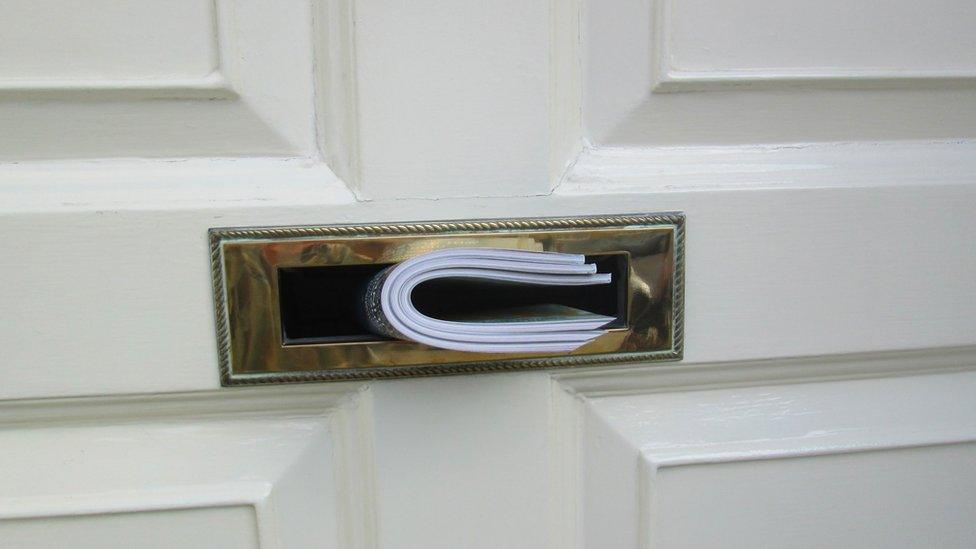
What motivates armies of volunteers to brave the weather to trudge the streets in search of local election votes which will make the crucial difference for their party's chances?
Most people are not members of political parties and many treat politics as a spectator sport rather than something they actually participate in.
But the activist is different, giving their time and their energy for the cause of their party.
As a member of the Labour party for almost 35 years, Aberdeen GP Clare Wilkie knows a thing or two about pounding the pavements.
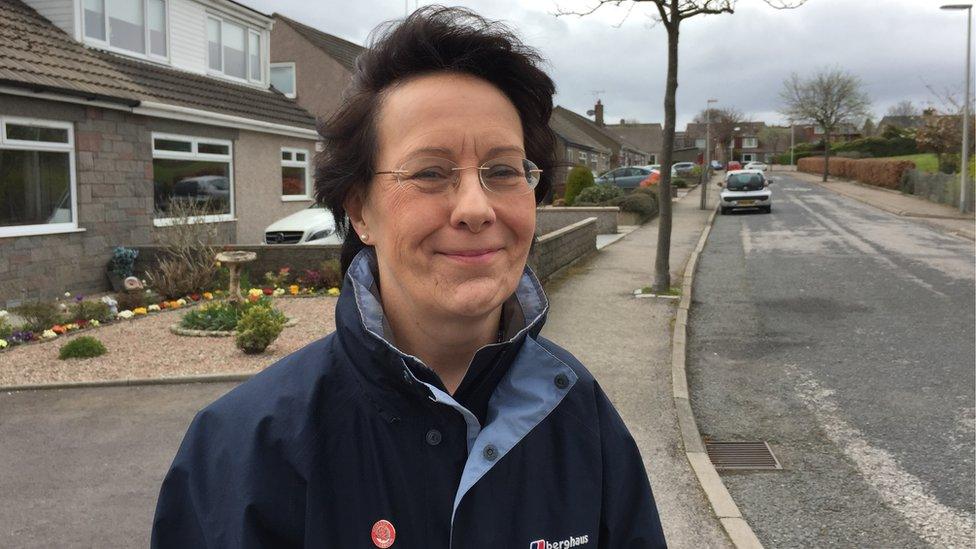
Labour's Dr Clare Wilkie says if we don't participate we can't complain
But she was not always what you might call an "active" activist.
Although she was a party member she did not go to meetings or go out campaigning.
So what changed?
"Politics is the way that we live together," she says.
"If we don't all participate and decide who we want to run things we really have no way of complaining when they are badly run.
"Politics formalises people's motivation to look after each other."
When I met her, Labour activists were out and about in Bridge of Don.
The party has been running Aberdeen City Council in a coalition with the Conservatives and independents.
They go into the election with one more council seat than their main rivals, the SNP, and they want to keep it that way.
Dr Wilkie says it is an area where you have to fight for every vote.
She says that while the 2014 Independence referendum and last year's EU referendum have left lasting divisions they have also energised more people to get involved in the political process.
'Fighting on local issues'
A few miles up the Aberdeenshire coast is one such person.
Electrician Billy Sangster, from Newburgh, became an SNP activist in the run-up to the Independence referendum.
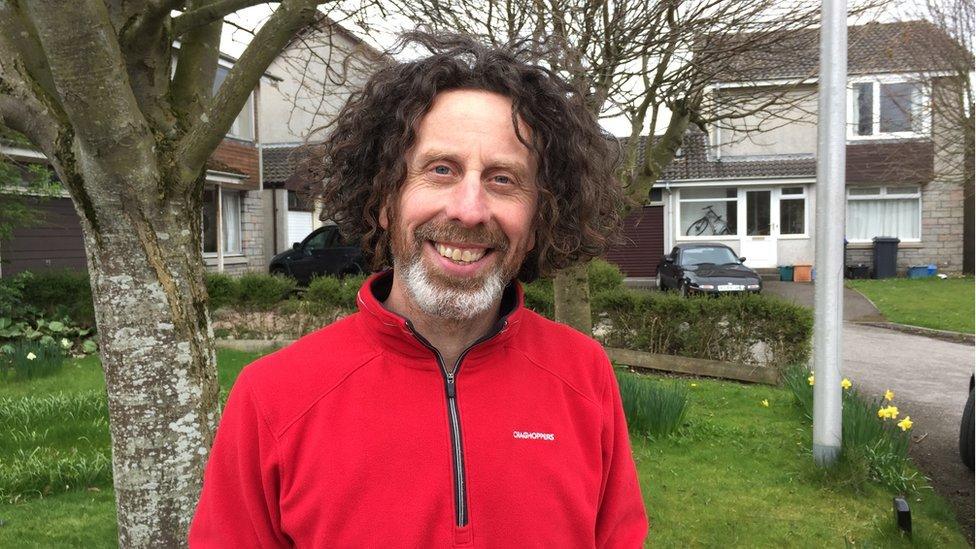
SNP activist Billy Sangster
He had been a member of the party since 2007 but his involvement had not gone beyond reading the various newsletters he was emailed.
But he has now been involved in every campaign since 2014 and the local elections are no exception.
In the name of the party he has been bitten by a dog, wears special joiner's gloves to avoid letterbox blisters on his knuckles, and even once had his canvassing documents ripped up by an angry old lady.
But he says what irks him the most is trying to explain to the unconverted that the SNP is not just about a second independence referendum.
"We're fighting this on a local agenda with local issues," Billy says.
"You have to explain that your local councillor has very little influence over Nicola Sturgeon and that this is to do with the lighting in your street, potholes in the road, and who solves the dispute about the fence at the bottom of your garden."
Motivated by climate change
In central Edinburgh going up and down seemingly endless flights of stairs in the city's tenements is a particular challenge facing canvassers.
For Lorna Slater of the Scottish Greens the trick is to trudge all the way up to the top and then work her way down.
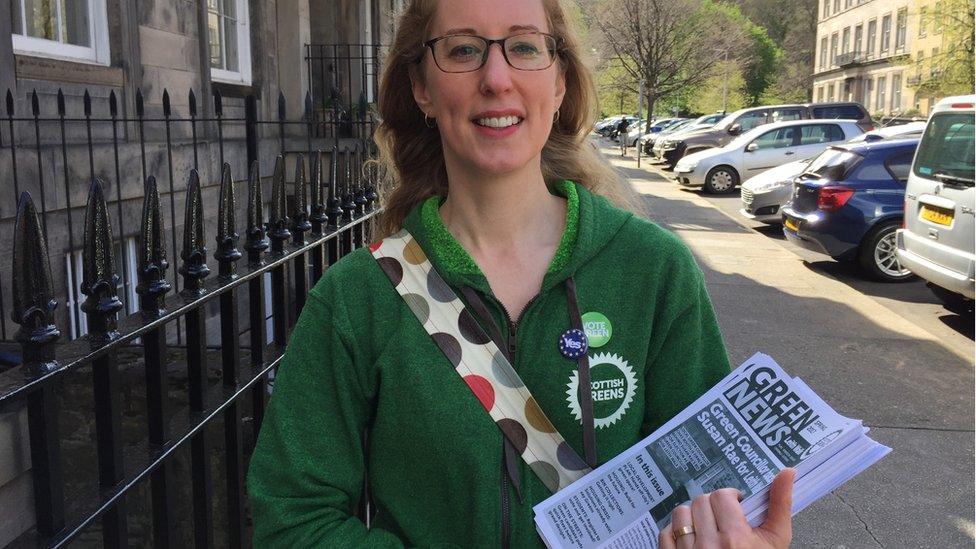
Lorna Slater says trudging the streets and plodding up stairs is worth it
It gets the climb, and therefore the worst part, over with.
And as for the leaflets she distributes, she is a roller rather than a folder as she reckons they are easier to get though letterboxes.
She says she always believes trudging the streets and plodding up and down tenement stairs is worth it, although she accepts that some people cannot be won over.
She got involved in the run-up to the 2014 referendum, with fighting climate change being her main motivation.
"I took environmental philosophy as part of my engineering degree and it made me see the world in a different way," she says.
"If we are to have a future as a species we can't be complacent.
"You can't have a working planet without a working human society."
'Pavement politics'
In Midlothian, retired print worker David McDonald has now been pounding the pavements for the Liberal Democrats for nearly three decades.
He folds his leaflets rather than rolling them up, and says he is not bothered with getting his knuckles scraped on letterboxes, but has been bitten by dogs lying in wait behind front doors.
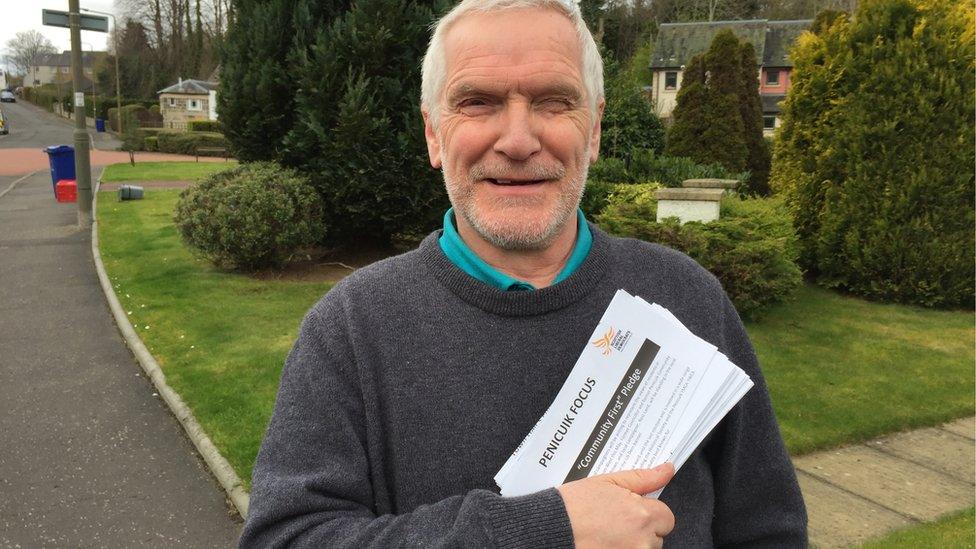
He says he finds the Lib Dems a good fit for the way he sees the world.
"I just felt that the community politics, the agricultural policies, all those things gelled together and said this is the party for me," he says.
"The pavement politics was the thing that clicked.
"So that's when I joined up to deliver leaflets. That was 1979."
He says he's been around long enough to see that politics goes in cycles with ups and downs and believes that the secret of being an activist is to hang on in there.
'People are fascinating'
On Perth High Street the Conservatives have their gazebo set up and are targeting weekend shoppers.
After a career working internationally in the oil industry, Norman Grieve is now back in Perthshire campaigning in an area where the SNP has usurped what had traditionally been Tory territory.
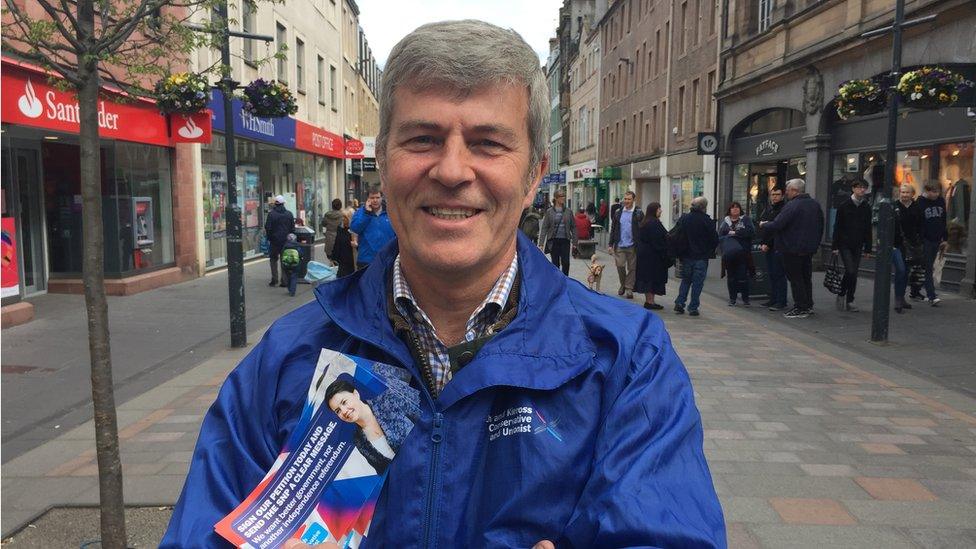
Norman Grieve says he wants his country to flourish
He accepts they have a fight on their hands but insists they are up for it.
"I see a lot of people not really living in good conditions," he says.
"I don't like that.
"It makes me feel uncomfortable.
"I want Scotland to do well, I want people here to prosper and for the country to flourish."
Norman says he finds talking to people fascinating and that often the best conversations are with people he did not expect to want to engage.
Like most canvassers he has had his moments with cut fingers on letter boxes and dogs shredding leaflets he has put through.
His secret technique is using a kitchen spatula to get things through letter boxes without incident.
No personal gain
None of our five activists need to do what they do.
They are not paid, and there is no direct personal gain, and in some cases some real personal pain in terms of scraped knuckles, sore feet and dog bites.
Their political views might divide them, but to a woman and a man they are united in being a fundamental part of the glue which holds democracy together.
They might not realise it but without them it really wouldn't be the same.